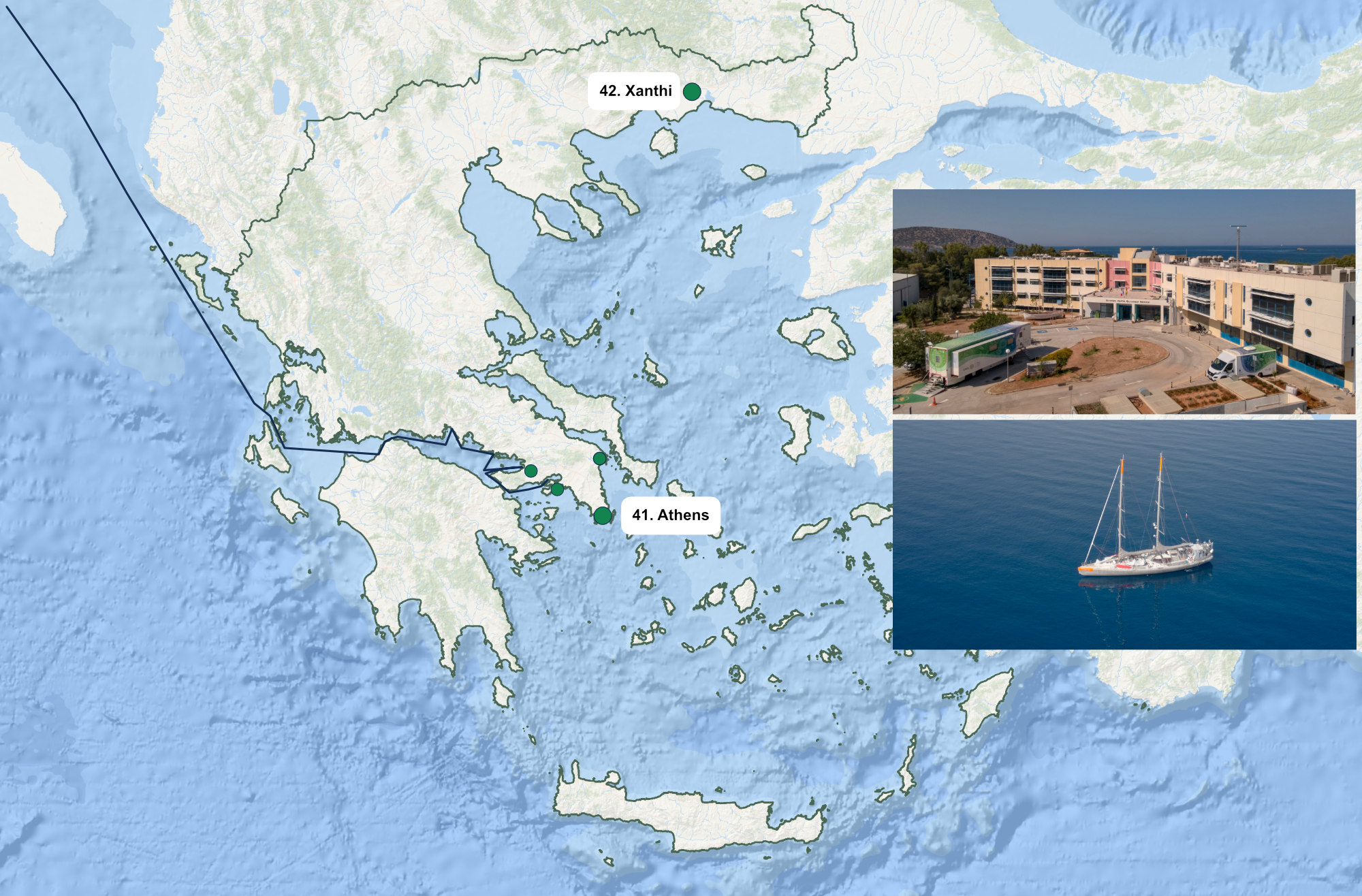First European expedition to study human impact on seas and coastal regions stops in Athens
After sampling the European coastline along the Atlantic, Baltic and North Sea last year, the ‘Traversing European Coastlines’ (TREC) expedition explores the Mediterranean coastline in 2024 and arrives at its final destination, Greece, in July.

TREC is the first continent-wide project to study coastal ecosystems and their response to the environment. Our seas and coasts host an extremely rich diversity of life and play critical roles in the stability and sustainability of wider ecosystems. However, anthropogenic interferences are leading to accelerated loss of species’ genetic diversity and destruction of functional ecosystems. By sampling along the entire European coast, the TREC expedition will provide a richer and deeper understanding of how ecosystems respond to natural and human-made challenges. The TREC expedition is led by the European Molecular Biology Laboratory (EMBL), together with the Tara Ocean Foundation, the Tara OceanS consortium and the European Marine Biology Resource Centre (EMBRC). It brings together more than 150 research teams from over 70 institutions in 21 European countries and also involves local partners along the sampling route, such as HCMR.
The Hellenic Centre for Marine Research hosts the TREC project in its’ facilities at Anavyssos, Attiki. HCMR personnel from all Institutes interacts with the TREC project in multiple ways, from local logistics and problem solving of day-to-day activities to samplings. Samplings were assisted by coordinating the necessary sampling permissions from the Ministry for Environment and Energy. The same was done for the CITES permissions to export samples from fauna. Public activities of EMBL and TREC in Athens are also co-organised with HCMR. Scientists are joining the samplings and lab work activities across the 2 week stop of TREC and Tara schooner. All these activities in Athens are documented and presented in this website trec.hcmr.gr. TREC project is a great opportunity for collaboration and exchange of ideas from scientists all around the world about the state of the art methods to study and learn about the threatened coastal ecosystems of Europe.
